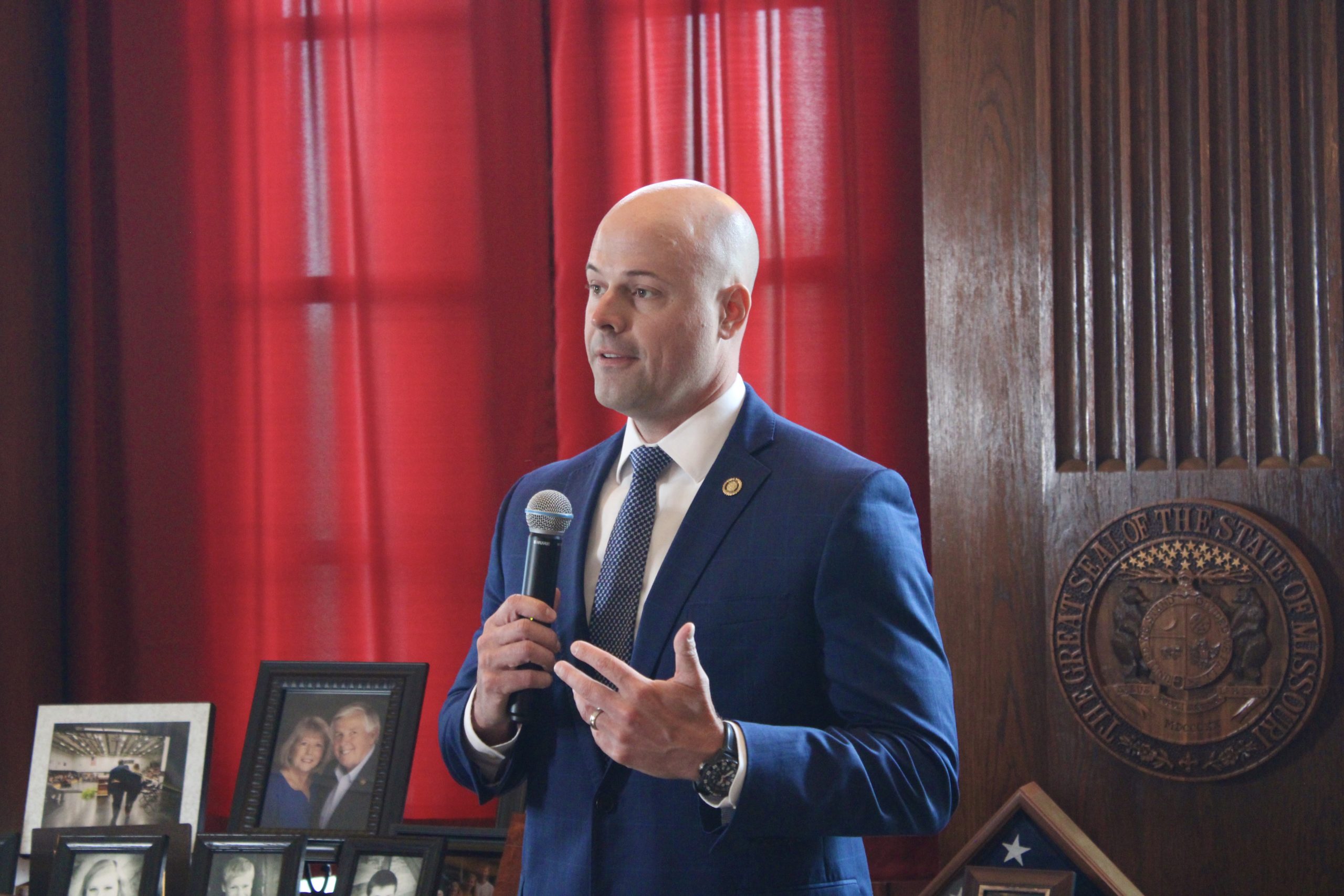JEFFERSON CITY, Mo. — Gov. Mike Parson signed a bill establishing COVID liability protections for businesses, religious organizations, and manufacturers Wednesday.
SB 51, sponsored by Sen. Tony Luetkemeyer, is meant to protect certain businesses, accommodations, and activities from being held liable for exposure to COVID-19 unless a plaintiff could clearly prove the entity or individual acted in willful or reckless conduct that caused exposure to the virus.
Parson ceremoniously signed the bill at Koller-Craft Plastic Products in Fenton and joined Luetkemyer at the statehouse for another signing later in the day. Parson said the bill would protect businesses that contributed to the fight against the pandemic over the past year and a half.
“A lot of people stepped up — more than 200 businesses retooled their companies to help us during one of the most dramatic emergencies I can remember in a long time,” Parson said. “This is to protect those businesses. The last thing we need to do is punish anybody for trying to help in the middle of this crisis.”
Luetkemeyer noted protections extend beyond businesses, covering schools, places of worship, and health care workers as well.
“I want to thank the governor and the business community for making this a huge priority,” he said. “It was a pleasure and a privilege to carry the bill.”

The bill establishes a rebuttable presumption of risk in exposure suits when a business or individual posts certain health warning signs or other written notices. Religious organizations are not required to post such signs. The bill does not allow changes in policy or procedure by a business or individual meant to mitigate the spread of COVID-19 to be considered evidence of culpability or liability.
Health care providers are protected under the bill except when a plaintiff can prove recklessness or willful misconduct and allege the damage resulted in personal injury was caused by such recklessness or willful misconduct. Suits would have to be filed within a year of the discovery of alleged exposure.
After being withdrawn from the second extraordinary session of 2020, the bill faced the first lengthy filibuster of this year’s session in the Senate with perfection taking nearly 15 hours in mid-February. An emergency clause was voted down upon its passage in the Senate. The bill struggled during its time in the lower chamber: It was voted down in the House Legislative Oversight Committee but was revived. Yet, further action was delayed until the day before session concluded.
It passed the lower chamber with less than an hour to go in session, the final bill to be approved by the legislature during the regular session.
Several conservative members of the upper chamber opposed the bill during its time on the floor, accusing the legislation of protecting “special interests.” Business groups, including the Missouri Chamber of Commerce and Industry, supported the effort to “protect Missouri employers from opportunistic COVID-19 lawsuits.” The American Tort Reform Association (ATRA) was another proponent of the bill.
“We are grateful to Gov. Parson for signing this important covid liability protection legislation into law,” said ATRA President Tiger Joyce. “Through Gov. Parson’s leadership and by prioritizing the rebalancing of Missouri’s civil justice system, he will help families and employers across the state and promote Missouri’s economic recovery.”
Parson listed protections among his top legislative priorities for the year during his State of the State address, citing the pandemic’s impact on Missouri businesses and the need to recover economically.
COVID liability is one of several bills being signed by the chief executive Wednesday. Other legislation includes a bill bringing Missouri in line with national mental health parity standards, one allowing the permanent sale of alcohol to-go, and another modifying the state’s workers compensation system.
This story has been updated.

Cameron Gerber studied journalism at Lincoln University. Prior to Lincoln, he earned an associate’s degree from State Fair Community College. Cameron is a native of Eldon, Missouri.
Contact Cameron at cameron@themissouritimes.com.

































